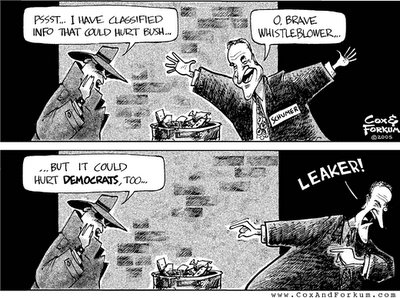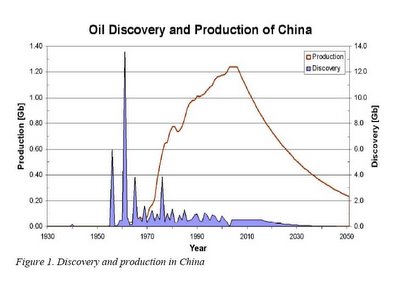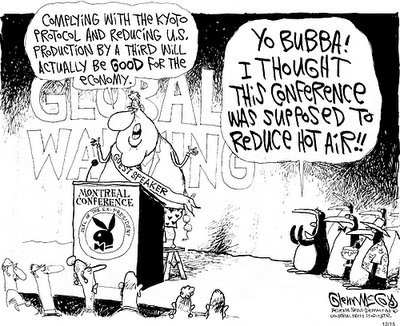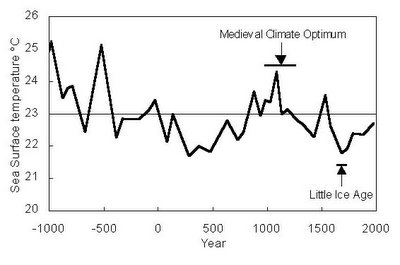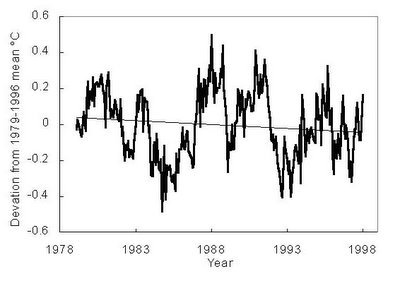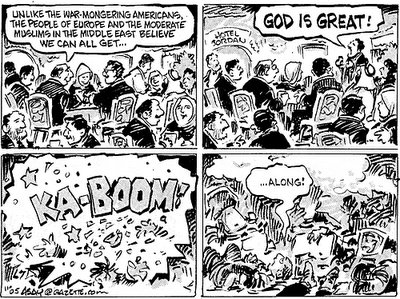Justice Alito Is Not Enough
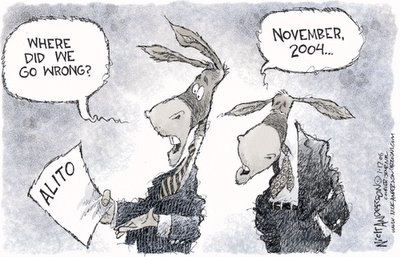
Conservatives of all stripes have certain desires concerning the makeup and evolution of the Supreme Court. We may not agree on all details, but we are united in wanting the Court to act as a court should act – that is, interpreting and applying the laws as passed by representatives of the people, the House of Representatives and the Senate. To be specific with regard to widely discussed issues, we want to see Roe vs. Wade and Kelo vs. New London overturned, and we want the “establishment” clause of our Constitution to be interpreted and applied as it was meant to be applied.
What we don’t want is for liberal judges to continue to substitute their opinions on societal and political issues where the majority of our representatives has decided otherwise (i.e. partial-birth abortions) or where no vote has been taken at all, and we don’t want government power to be expanded in areas our Founding Fathers specifically forbade.
The one case on which I think there would be wide agreement, and one where many liberals would join conservatives, is Kelo vs. New London. This case is also one where thousands of people are in imminent danger of losing their homes and businesses through this unconscionable extension of government power (eminent domain). This is the issue I would concentrate on in bringing before the Court rehearings of past decisions.
The problem is that the elevation of Justice Alito to the Supreme Court is not, in itself, enough of a change to rectify the situation. Remember that the justices who voted in favor of New London were: Stevens, Breyer, Ginsburg, Kennedy and Souter – all liberal judges. Those voting against were O’Connor, a swing judge, and justices Rehnquist, Scalia and Thomas – all conservative judges. Chief Justice Roberts has replaced Rehnquist, and Justice Alito has replaced O’Connor. This means that the balance on the Kelo case probably has not changed; we need another conservative justice to overturn.
What this really means is that conservatives across the country must keep working and keep contributing money so that the Senate remains in Republican hands this year, and to avoid another filibuster, elect even more Republicans than we now have. Then we have to hope that President Bush gets an opportunity to appoint another justice who is a strict constructionist. By the way, not only did many of the Democrat Senators make fools of themselves at the Alito hearings, but they went on to welch on an agreement they had made with the leadership as to when the vote would be taken.
One last note – here is a definition we should remember if we are in favor of reasonable abortion rights AND the correct application of our Constitution:
January 17, 2006
What Planet Are Democrats From?
By Mark Davis
So, this is how far we have come.
In 2006, a good man like Samuel Alito can be lectured on human behavior by the likes of Sen. Edward M. Kennedy of Massachusetts.
Mr. Kennedy and his colleagues can gang up on a man who seems to have made almost no enemies and paint him as some pernicious closet misogynist bigot.
Meanwhile, their fellow Democrat senator who was an admitted member of the Ku Klux Klan is toasted as a pillar of virtue.
Robert Byrd can hang with lynch mobs in West Virginia in his past and get a free pass; but Sam Alito doesn't get a break for even the most tangential brush with the Concerned Alumni of Princeton, some of whose members might not have been the most enlightened souls in the Ivy League.
I expected this kind of character assassination in the juvenile exercise that these hearings have become. Martha Alito, his wife, apparently did not, brought to tears Wednesday by what has become pathetically routine: the perverse abandonment of basic decency in order to score cheap political shots in an election year.
As despicable as Mr. Kennedy's behavior has been – and this is without even addressing his questionless Bush-bashing diatribes that have wasted the time of the committee, the nominee and the public – his is not the most discouraging sin of these hearings.
That falls to Sen. Dick Durbin of Illinois for a comment he probably let fly without a second thought late Wednesday afternoon.
Mr. Durbin was dwelling on the famous 1985 job application in which Judge Alito expressed pride in his view that the Constitution contains no right to abortion.
The judge was right then, and, if he has remained steadfast in this belief, he is right today.
But the fraud of Roe vs. Wade is so tightly woven through our society that those words have grown more controversial as the concrete of that horrible decision has dried.
The sad fact is that because of Democrat dishonesty on the issue and the complete failure of Republicans to call them on it, a majority of Americans probably do not have the slightest clue what would happen should Roe vs. Wade be punted.
And, apparently, some U.S. senators with law degrees do not know, either.
Mr. Durbin's quote to Judge Alito: "I'm concerned that many people will leave this hearing with a question as to whether or not you could be the deciding vote that would eliminate the legality of abortion, that would make it illegal in this country."
This is a moment of such profound deviousness or ignorance that the mind staggers.
Either the senator does not know how our system works (despite his Georgetown law school diploma), or he sought to foist an intentional scare on an underinformed America.
The moment Roe is reversed, every state gets to make its own abortion laws.
That's it. No federal ban on abortion. No back alleys. No coat hangers.
This is not like a light switch. Roe made abortion legal across the land, but the absence of Roe does not bring a coast-to-coast ban. It would simply fall to the 50 state legislatures to fashion their own laws, and that is where those favoring and opposing abortion rights would properly have it out to determine how easy or difficult it should be to terminate a life inside the womb from Massachusetts to Texas, from New York to Alabama.
Most states probably would keep the status quo of abortion guidelines that have become familiar in the 32 years of the Roe era. Some would curtail abortion availability, but still others might liberalize it even further.
If more people grasped this, we could probably have a reasoned debate about Roe, and more people could bring themselves to see that the abortion emperor has never had any clothes.
It was a sham for the Supreme Court to concoct a universal abortion right in the Constitution in 1973. Intentionally misrepresenting the effects of Roe's reversal is unforgivable.


